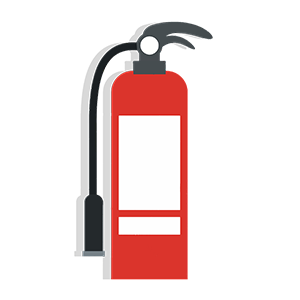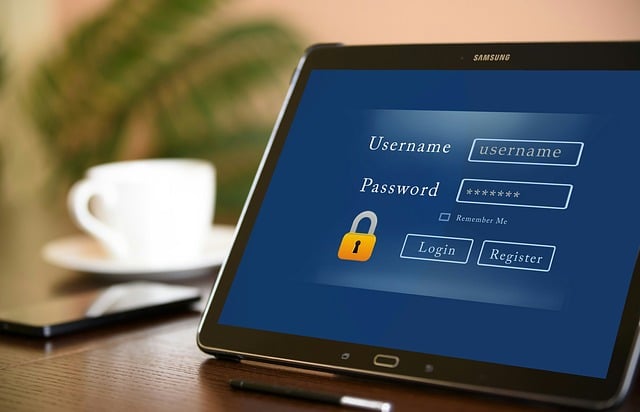Umbrella insurance protects insureds from financial devastation. It’s a common policy homeowners purchase because it protects their home and other assets when an insurance claim exceeds existing homeowners or auto insurance policy limits. However, it could be a smart investment for renters, too. 
It Supplements Existing Liability Protection
Typically, basic liability protection only includes $100,000 in coverage. An umbrella policy can offer $1 million or more in additional coverage. Both types of coverage offer financial protection and peace of mind.
It’s Inexpensive
For $1 million in liability protection, renters could pay as little as $300 a year. Claude Lilly, Clemson University College of Business and Behavioral Science dean, also reminds renters that an addition million may only cost $100 more. This inexpensive investment protects a renter’s possessions, auto and other assets as it gives the insured peace of mind.
It Complements Exposures
The hobbies a renter enjoys can make an umbrella policy a necessity. For instance, the renter’s dog bites a contractor or guest, resulting in thousands of dollars in medical expenses and an expensive lawsuit. The umbrella coverage kicks in after the basic renter’s insurance policy funds are exhausted, and it provides the financial protection the renter needs.
Likewise, owning a swimming pool, hunting as a hobby or playing golf can each be fun activities, but they also have the potential to turn into expensive lawsuits. Renters should invest in an umbrella policy that covers expenses associated with a claim or liability related to the exposures they enjoy.
Consider Net Worth
Each renter can decide how much umbrella insurance to purchase. Overall, the renter’s current assets and net worth determine the basic coverage amount.
Buy Based on Future Earnings
A renter who’s found liable for an auto accident could face wage garnishment. Purchasing an umbrella policy that takes future earnings into account ensures the renter is adequately covered and can pay the judgment without losing his or her home and other assets.
Remember Slander, Libel and Invasion of Privacy Protection
Umbrella coverage does more than protect financial assets after an accident or lawsuit. It also protects renters who are victims of slander, libel or privacy invasion. The protection an umbrella policy offers against these challenges makes it a wise investment.
Overall, umbrella insurance provides beneficial coverage for every consumer, including renters. An insurance agent can offer additional counsel and advice regarding how much umbrella insurance to purchase.
Read more
 You own your home, have your own business, and drive a new car. Though you are not rich, you are comfortable. It will be a shame to lose it all if someone sustains injuries by your car or at your home or place of business.
You own your home, have your own business, and drive a new car. Though you are not rich, you are comfortable. It will be a shame to lose it all if someone sustains injuries by your car or at your home or place of business.
You have insurance you say; you have standard auto liability insurance. The limits are $100,000 for a single person and a total of $300,000 for multiple people. Suppose you are responsible for any accident involving a shuttle taking ten people to the airport. Three hundred thousand dollars allows on average $10,000 per person. That is hardly enough to cover the emergency room fees let alone any surgery, rehabilitation, lost wages and other medical expenses. If there is a fatality, you may consider bankruptcy.
Your business has a small storefront on a busy street. A middle-aged executive comes into your place of business following a rainstorm. Your floor is wet and slippery, and the executive slips and falls. He strikes his head, loses consciousness, and goes into a coma. Your general business liability insurance has the same limit as your auto insurance – $100,000. It may cover part of the hospital bill, but the official says he is permanently disabled and sues you for future wages for $1 million. Since your business is a sole proprietorship, bankruptcy beckons.
Your son invites a friend over for a swim in your pool. He dives into the shallow end strikes his head and suffers traumatic brain injury. Sadly, the damage is permanent — with standard liability limits of $100,000 — well, you know, bankruptcy stares you in the face.
The inexpensive, elegant solution to the problem is umbrella insurance. When a claim exceeds your standard liability insurance limits, your umbrella insurance policy takes over and pays up to your umbrella liability limits. Most people who buy umbrella insurance extend their liability limits to $5 million.
Though you hope never to use it, for a few hundred dollars per year, you can protect your assets, and avoid financial disaster. Umbrella insurance pays when you are responsible for an injury that exceeds your standard liability limits.
Read more
With over 3 million acres burned this year, California is reeling under the impact. This is around 10 times more acres than the state usually experiences.
While firefighters fight on, and our state’s resources are strapped – much of our wilderness and trails remain closed. As regular citizens we may feel helpless but we need to continue to do our part to prevent fires when we can.
October is National Fire Safety Month. Now is as good a time as any to evaluate your home and workplace so you can keep your loved ones and employees safe. Consider taking these steps that help you prevent fires this month and year-round.
Fuel Remediation
Make sure trees and surrounding areas follow the local guidelines. Clear out flammable brush and take down flammable trees. Thin the trees (using recommended proximity guidelines) .
Organize your Space
Poor housekeeping can mean an increase in clutter and fire fuel. Plus, messy hallways and blocked exits, sprinklers or firefighting equipment can hinder escape and rescue efforts. Walk through every part of your building and perform a thorough cleanup.
Maintain Equipment
Machinery, electronics and other equipment can overheat and cause a fire. Maintain all your equipment to prevent this hazard.
Prevent Electrical Hazards
Faulty wiring and other electrical hazards can spark a fire. Perform regular inspections of the entire electrical system and make any repairs immediately.
Store Chemicals Wisely
Flammable chemicals pose a safety risk. Read the Material Safety Data Sheets and labels on each container, then store and use the chemicals properly.
Allow Control Panel Access
You can turn off the electric and reduce this potential fire hazard at the control panel. Ensure the control panel is easily accessible and that key personnel know where it’s located and how to turn off the electric during an emergency.
Stock Fire Extinguishers
Based on your building’s size and occupancy, you must stock a certain number of fire extinguishers. Follow this requirement and inspect the fire extinguishers at least once a year to ensure they remain in proper working order. Also, train every staff member to use the fire extinguishers confidently.
Install Smoke Detectors and Sprinklers
Smoke detectors provide a warning, and a sprinkler system can save your building, equipment and inventory if a fire does start. Install both of these safety features, and inspect them regularly.
Designate Specific Smoking Areas
Require smoking employees and visitors to smoke only in certain areas that are far from chemicals, papers and other flammable materials. Provide ashtray receptacles and stock working fire extinguishers near the designated smoking areas, too.
Clearly Mark Exits
Post emergency exit diagrams where employees can see them. Also, mark every exit with a neon sign, and place reflective tape on the floor and doors.
Perform Regular Fire Drills
Fire drills prepare your employees for a successful evacuation. Conduct these drills regularly.
Update Contact Information
All of your employees should know who to contact during an emergency. The contact list will include the phone numbers for emergency personnel and key employees.
This October, you can celebrate National Fire Prevention Month. Take these 11 steps as you prepare your commercial property to remain safe.
Read more

Property owners have a unique opportunity to efficiently rent out their entire home, a spare bedroom or other accommodation through the online service known as Airbnb. For travellers, Airbnb is convenient, web-based platform that provides affordable and flexible alternatives to hotels. For property owners, the tool easily connects various rental units with prospective occupants and makes collecting payments simple and secure.
Despite it’s convenience and the potential for profit, Airbnb is not without its risks for those who decide to list. Before renting out your home or spare room through Airbnb, keep in mind the following tips:
- Acquire the proper insurance.
Proper insurance is key to mitigating the risks associated with Airbnb. Take the time to review your renters or homeowners policy to make sure you have adequate coverage in place.
- Complete a home safety inspection.
Safety inspections can help Airbnb hosts address risks before they balloon into bigger issues. Before listing your property on Airbnb, complete a through home inspection and address all of the safety hazards you identify.
- Screen all guests.
Prior to allowing guests to stay in your home, it’s a good idea to check their background. To begin, ensure that prospective guests are verified through Airbnb. You can also review any connected social media accounts and read guest references through the site. Above all, trust your instincts.
- Set clear rules.
Through Airbnb, you can create guidelines for guests by completing the House Rules, Home Safety Card and House Manual sections of your profile. This allows you to set clear rules for guests around etiquette and safety.
- Establish occupancy limits.
Limiting the number of occupants that can use your property will help ensure that guests are comfortable and safe during their stay. Occupancy limits should take into account the size of the property and local regulations.
- Add a security deposit.
Adding a security deposit to your Airbnb listing can lessen the financial blow in the event of damaged property or another incident.
- Secure your valuables.
When you open your home to guests, there’s the potential that valuables could be damaged or stolen. To protect expensive items, consider moving them into a safety deposit box or to a secure off-site location.
- Protect sensitive information.
Your property isn’t the only thing you need to worry about when inviting guests into your home. To help prevent identity theft, make sure that guests cannot gain access to any files (physical or electronic) that contain sensitive personal information.
- Install smoke and carbon monoxide detectors.
Safety equipment like smoke and carbon monoxide detectors should be installed around the premises to protect guests and your property. Emergency exists should be property labeled as well.
- Child-proof your premises.
It’s likely that some of your guests will have children. To protect younger guests, take the time to properly child-proof your home.
- Keep your accommodations maintained.
Good housekeeping can help guests avoid common injuries such as slips and falls. Prior to each stay, examine your home for any new housekeeping issues that must be addressed.
- Provide contact information.
Always supply your guests with information sheets that indicate local emergency numbers and the nearest hospital. Provide a clear emergency contact number for yourself, as well as back up, for easy guest reference. Also make clear how you should be contacted if the guest has questions or issues arise.
- Supply a first-aid kit.
In addition to providing emergency contact information, having a first-aid kit readily available and fully stocked at all times is important to guest safety.
- Verify compliance with regulations.
Regulations around Airbnb hosting can differ depending on your location and the type of accommodation you are renting out. Double-check that you are compliant with local and state laws before using Airbnb.
- Notify those who could be impacted by your guests.
When you host guests through Airbnb, there is the potential that neighbors or roommates could be impacted. To avoid unnecessary conflict, let your neighbors or roommates know ahead of time that guests will be using your property.
Read more

Agricultural workers are at a serious risk of injury or death when installing, climbing into, fumigating, entering, filling or emptying a silo. Because of the nature of the conditions present, workers may be exposed to hazards such as a lack of oxygen, toxic gases and grain entrapment.
To reduce worker risk of injury, properly train workers and remind them frequently of the following safety recommendations:
- Avoid entering a silo unless it is absolutely necessary.
- Complete tasks outside of the silo whenever possible.
- Have a coworker close by in case of an emergency.
- Never smoke or cause sparks near a silo, especially if the air humidity is low.
- Wear respiratory protection when appropriate.
- Stand at a safe distance when filling or emptying a silo.
- Use an approved fall restraint system and harness when climbing a silo.
- Ventilate a fumigating silo before entering.
- Conduct regular safety inspections of silos.
For more farm and ranch safety tips, contact Scurich Insurance today.
Read more

As technology becomes increasingly important for successful business operations, the value of a strong cyber liability insurance policy continues to grow. The continued rise in the amount of information stored and transferred electronically has resulted in a remarkable increase in the potential exposures facing businesses.
In an age where a stolen laptop or data breach can instantly compromise the personal data of thousands of customers, protecting your business from cyber liability is just as important as some of the more traditional exposures businesses account for in their commercial general liability policies.
Claims Scenario: Outsourcing Gone Wrong
The company: A national construction company that outsources some of its cyber security protections
The challenge: A construction firm partnered with a third-party cloud service provider in order to store customer information. While this service helped the company save on server costs, the third-party firm suffered a data breach.
As a result, the construction firm had to notify 10,000 of its customers and was forced to pay nearly $200,000 in incident investigation costs. The incident was made worse by the fact that the firm did not have a document retention procedure, which complicated the incident response process.
Cyber liability insurance in action: Following a data breach or other cyber event, the right policy can help organizations recoup a number of key costs. Specifically, cyber liability policies often cover investigation and forensics expenses—expenses that can easily bankrupt smaller firms who forgo coverage.
What’s more, when third parties are involved, managing litigation concerns can be a challenge. By using cyber liability insurance, organizations have access to legal professionals well-versed in cyber lawsuits and response.
Claims Scenario: Pardon the Interruption
The company: An online retail store that relies heavily on e-commerce
The challenge: A small-sized, online retailer partnered with a data centre to host its website and store its data. This is not uncommon, as many small businesses don’t have the IT infrastructure to host products, process payments and fulfil orders on-site.
Unfortunately, the data centre was targeted in a distributed denial-of-service (DDoS) attack. As a result of this attack, the retailer’s website went down for several days. While functionality was eventually restored, business interruption costs from lost sales and website downtime was over $165,000.
Cyber liability insurance in action: DDoS attacks are one of many weapons cyber criminals use to infiltrate and disrupt businesses. These attacks can impact any organization that owns a website, regardless of where it’s hosted.
Cyber liability insurance is one of the only protections organizations have against costly DDoS attacks and similar disruptions. This is because cyber policies offer business interruption loss reimbursement. Following a disruption caused by a cyber event, policies kick in and help organizations recover from any financial losses.
Benefits of Cyber Liability Insurance
- Data breach coverage—In the event of a breach, organizations are required by law to notify affected parties. This can add to overall data breach costs, particularly as they relate to security fixes, identity theft protection for those impacted by the breach and protection from possible legal action. Cyber liability policies include coverage for these exposures, thus safeguarding your data from cyber criminals.
- Business interruption loss reimbursement—A cyber attack can lead to an IT failure that disrupts business operations, costing your organization both time and money. Cyber liability policies may cover your loss of income during these interruptions. What’s more, increased costs to your business operations in the aftermath of a cyber attack may also be covered.
- Cyber extortion defence—Ransomware and similar malicious software are designed to steal and withhold key data from organizations until a steep fee is paid. As these types of attacks increase in frequency and severity, it’s critical that organizations seek cyber liability insurance, which can help recoup losses related to cyber extortion.
- Legal support—In the wake of a cyber incident, businesses often seek legal assistance. This assistance can be costly. Cyber liability insurance can help businesses afford proper legal work following a cyber attack.
When cyber attacks like data breaches and hacks occur, they can result in devastating damage. Businesses have to deal with business disruptions, lost revenue and litigation. It is important to remember that no organization is immune to the impact of cyber crime. As a result, cyber liability insurance has become an essential component to any risk management program.
Cyber exposures aren’t going away and, in fact, continue to escalate. Businesses need to be prepared in the event that a cyber attack strikes. To learn more about cyber liability insurance, contact Scurich Insurance today.
Read more





